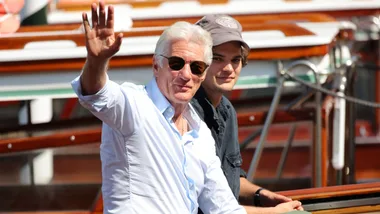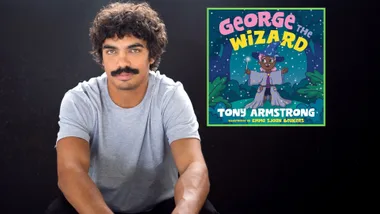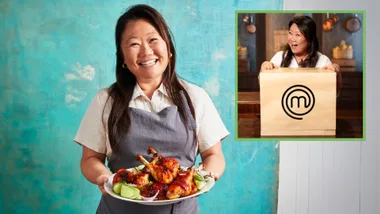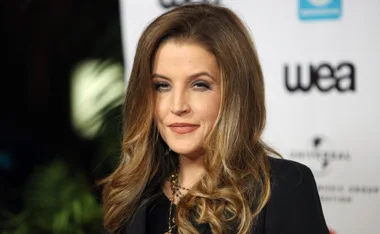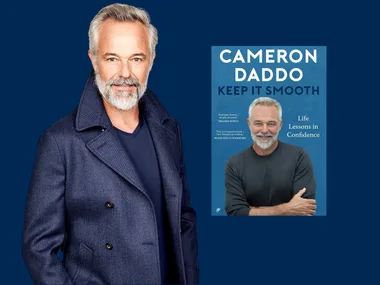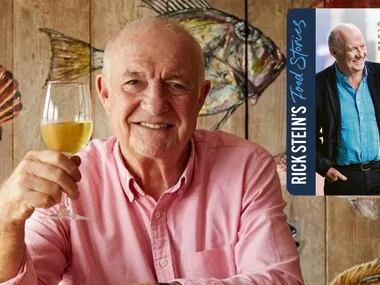It’s Sunday morning and the sound of gospel singing floats down the main street of Mochudi, a straggly, red dirt town in south eastern Botswana. There’s not much traffic under a streaky blue sky. What there is — clapped-out utes, dented sedans, a dinky white van or two — crawls along dodging goats, donkeys and cows.
In the past, Mochudi was the kind of place most tourists passed by without even a glance — a typically shambolic African country town of thatched houses and hairdressers called “Respect”, “Lovely Ladies Hair Saloon” (sic) and “Dreamland Hair & Clinic Boutique”.
But ever since Alexander McCall Smith’s hugely successful No.1 Ladies’ Detective Agency, featuring his deliciously reliable, sensible and thoroughly comfortable heroine, Precious Ramotswe, towns such as Mochudi, Molepolole, Gaborone, Maun, Selebi-Phikwe and Tlokweng, have gained a quiet kind of notoriety.
The books may be fiction, but McCall Smith’s line between fact and fantasy is so ephemeral that organised tours in Gaborone, the sprawling and untidy capital of diamond-rich Botswana, are flourishing. Tourists are travelling to Mochudi to see where Mma Ramotswe was born and to Molepolole to see where her father, Obed, kept his treasured cattle.
They are drinking the same red bush tea (rooiboos) that Precious Ramotswe sips as she struggles to solve local mysteries and unravel the endless moral issues that confront daily life — no matter where we live.
“What is the appeal of Mma Ramotswe?” McCall Smith mulled when I met him in Sydney before travelling to Botswana to tread in the footsteps of his heroine. “She is a maternal figure and she answers people’s need for a sympathetic person to listen to them. We all yearn for stability.”
Sandy, as he is known, sipped a cup of English breakfast tea. He looked like a favourite uncle — round-faced, tufts of grey hair curled at his ears, a high, domed forehead and glittering blue eyes that suggested he was up for any kind of mischief. Like his books, though, his demeanour was deceptively simple.
A former professor of medical law at the University of Edinburgh, McCall Smith, who spent his childhood in Africa, is an extraordinary observer of people and country. He brings Botswana to life while dealing with universal issues and themes: tolerance, kindness, thoughtfulness, even abuse, exposing the fragility of all cultures in a modern world.
“Is your heart is Botswana?” I asked, because he has spent most of his adult life in bleak Edinburgh.
He paused. Sipped more tea. “No,” he said, finally. “My heart, my home, my wife and children, are bound up in Scotland. But I still have strong feelings for that part of Africa and I could never have written the books if not for the years I spent there.”
“Is it really as innocent as you describe?”
“In a way,” he said. “Although Mma Ramotswe represents a lost Eden — or the old Batswana morality — which is sadly disappearing. It is a country that beguiles, though. It is beautiful and gentle — and yes, beguiling.”
A few months later, my husband and I begin our Botswana adventure, landing in frying-pan flat Maun, the laid-back gateway to the lush Okavango Delta. In truth, even the most die-hard fans of McCall Smith’s books primarily visit Botswana to experience the amazingly diverse animal and birdlife found here.
We would spend four nights in total at &Beyond’s Sandibe Safari Lodge and Xaranna Okavango Delta Camp, situated deep among crystal clear lagoons, winding channels and the tall papyrus reed and pampas grass of the delta. Then begin a two-day drive south to Gaborone: Mma Ramotswe country.
At Maun, we climbed into a five-seater aircraft for a flight to Chitabe, a pitted clay airstrip 20-minutes from Sandibe. Our guide, Patricia, helped us load our bags and we set off along a sandy track in the standard open-sided safari four-wheel drive.
Five minutes later, she suddenly braked hard. “Jesus!” she whispered, pointing at a pile of pooh. “That’s leopard dung. And it’s still steaming.” She looked around. Cautious. Then glanced up. Less than 10m away, louche and lovely, a fully-grown leopard stared straight back at us from the branch of a tree. It looked so silken and benign, the desire to jump out of the truck to stroke it was almost overwhelming.
“Never, ever, look a leopard in the eye,” Patricia whispered. “It’s like a challenge. And the leopard will win.”
“What’s he doing?” we whispered back.
“Looking for dinner.”
Our lodge, set serenely and discreetly among jackalberries (African ebony) and palms, was a tall hut without walls — just a long column of ebony trunks supporting a thatched roof so that it seemed we were not just in the bush, but part of it.
There was an open fire at one end, leather armchairs, kilims on the floor, a coffee table scattered with leather-bound books filled with notes of animal sightings from past travellers.
After cool drinks, we were given a rundown of the schedule (early morning game drives, breakfast on location, lunch at the lodge, nap-time, traditional high tea, then afternoon game drives with cocktails on location, before returning for dinner), and a brief outline of the animals and insects.
“The spiders are harmless,” we were told, “but a staff member will always take you to and from your room after dark because there are no fences and this is truly the wild.”
All around, always, there were smiling faces and helping hands, folk songs sung beautifully by the staff, and we were enfolded in such warmth and humour it was like being guests in a friends’ home. Africa as we fantasise about it, but rarely find.
On our first evening, we stood motionless, our breath held in, as an elephant calmly wandered past the main hut, intent on eating the fruit hanging from palms. It felt, for a cosmic moment, as though we were, in truth, in Eden.
At Xaranna, a sister camp, sleek and new, a luxurious permanent but tented camp, hippos snuffled, snorted and feinted under water until we retreated (they are dangerous and unpredictable). Saddle-billed storks with beaks like red hot chillies strolled with wattled cranes, Egyptian geese, pied kingfishers, jacanas, egrets, white-faced whistling ducks, lapwings and babblers. We saw a pair of magnificent fish eagles, bateleurs, francolins and the impossibly pretty lilac-breasted roller.
At night, exquisite little painted reed frogs chorused joyfully like a host of heavenly xylophones, lulling us to sleep. It was hard, very hard to say goodbye to the Okavango Delta.
We picked up a four-wheel drive at Maun airport, and armed with a map, set off along a pot-holed road that was more a passageway for goats, cattle, donkeys and even — once — a five-wide string of horses galloping towards us like an apocalypse, than cars.
This was Mma Ramotswe’s world at last. An unadorned world without extravagance and tuned so finely into self-sufficiency, it made a mockery of excess. While yes, there was an odd Mercedes-Benz or two, it was more common to see rattle-y timber carts drawn by teams of earnest little donkeys, trotting along the old dirt tracks next to the highway. No doubt as they’ve done for centuries.
Like all Edens, though, there was a downside. In Gaborone, the capital city, liquor stores looked like war zones after what had clearly been a raucous Saturday night. AIDS affects 17 percent of the population with 33 percent of women testing positive and children — often AIDS-infected themselves — are being left to fend for themselves.
“The traditional extended African family has broken down to the point where it has become a myth,” says Derek James, national director of SOS Children’s Villages, one of the driving plot forces in McCall Smith’s books, where they are known as the “orphan farm”. “It’s estimated there are 110,000 orphans in Botswana, mostly as a result of AIDS,” he says.
James, blunt, irreverent, passionate and driven to find a way to help the helpless, tells stories of “his” kids that shock. A baby found in a sewer, another in a cardboard box dumped outside a store. Some so badly abused sexually and physically, they never recover. It is a litany of quiet and mostly unacknowledged disgrace.
“Sandy visits once a year,” James says. “He is a kind man who has helped us to build a clinic and book-based tours to our villages have brought in a lot of money. You know, I really believe Mma Ramotswe’s character is based on our matron, Betty Mpodi, a sunny, sensible woman with a husband who needs a lot of kindly direction. Just like Mma Ramotswe’s husband.”
He grinned. “Batswana men are generally useless. But they sing like angels. That’s something, I suppose.”
Another real-life character out of the books, Fiona Moffat, a now-retired librarian, is married to Dr Howard Moffat (he also appears in the books), a senior ranking member of the Ministry of Health and a former superintendent of the Princess Marina Hospital. She has lived in Botswana for 33 years.
“I went to school in Zimbabwe with Sandy’s sisters,” she says. “He’s always been able to charm, to make us laugh. Even when he was a kid.”
She tells me, too, that her husband’s grandfather, Robert Moffat, translated the Bible into Setswana (the language of Botswana) and Robert’s daughter, Margaret, married the famous missionary and explorer, Dr David Livingstone.
She remembers the day Sandy walked with her husband along the streets of Mochudi and saw a grateful woman kill and expertly pluck a chicken in the frontyard to present to the doctor. “Sandy wrote a short story about that. It was the seed,” she says. “I think, for the books that came later.”
Fiona believes the way of life Mma Ramotswe knew as a child and young woman began to change in the late 1960s. That’s when diamond and gold mines lured Batswana men from their quiet rural homes and strong family life with promises of instant wealth. Instead, it introduced them to disease and ultimately, despair.
“There was a time when you couldn’t drive in the streets of Gaborone on a Saturday morning because of the funeral processions,” she says. “Since the government provided free anti-viral drugs to treat AIDS, it’s not like that anymore. Thank God.”
It is a town, nevertheless, that is trying to cope with an exploding population, poor infrastructure and a rising, mostly petty, crime rate.
“What has never changed, and hopefully never will, is the warmth, kindness and humour of the people. Sandy gets that so perfectly right in the books.”
The 11th book by Alexander McCall Smith in the No.1 Ladies Detective Agency series, The Double Comfort Safari Club (Little, Brown, hardback, $34.99) is now on sale.
Travel essentials
Fly: South African Airways or SAA (phone 1300 435 972; www.flysaa.com) flies non-stop from Sydney to Johannesburg six days a week and daily from Perth, with connections to the largest network in Africa, including daily flights to Gabarone, Botswana. Australians can fly direct to South Africa on a round-the-world-ticket and return via Europe or the US, with SAA and a Star Alliance partner airline. SAA is consistently voted the Best Airline and Cabin Crew in Africa.
Stay: &Beyond (www.andbeyond.com) has luxury, eco-safari lodges throughout southern Africa, including Sandibe Okavango Safari Lodge and Xaranna Okavango Delt Camp in Botswana, on private concessions of 27,000 and 25,000 hectares respectively. Included in the daily tariff are villa or luxury tent lodgings, two safari drives and three meals. Sandibe is $400 per night per person and Xaranna $550 per night per person.
When: The Okavanga Delta is best visited during when the delta is full of water from May to September.
Newsletter conversion description. Get the latest in your inbox.


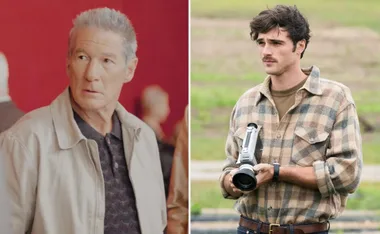
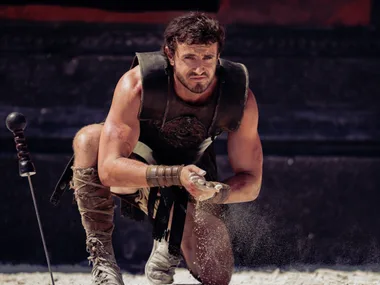
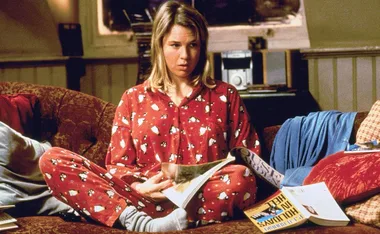

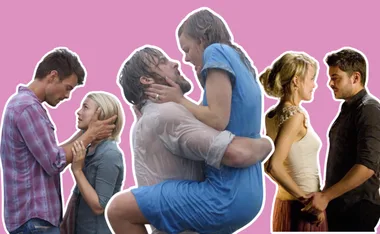

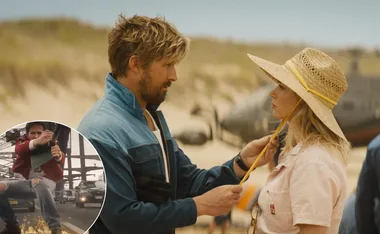
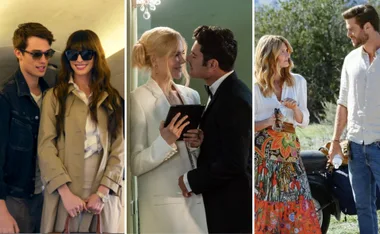
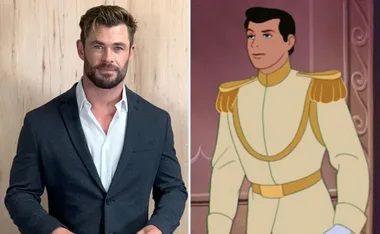












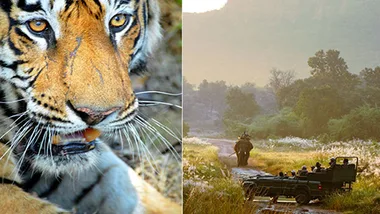







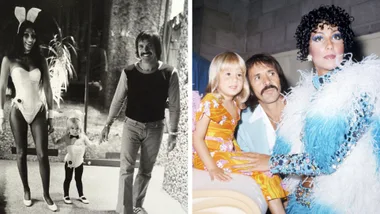



.png?resize=380%2C285)
.jpg?resize=380%2C285)
